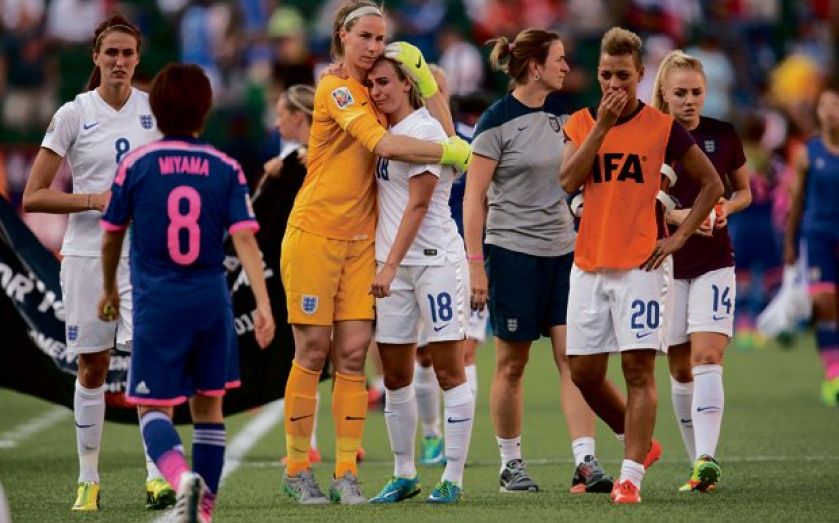Lionesses join pantheon of teams who hurt us the most

England women’s World Cup woe is a defining moment.
IN THE absence of antiquated measures such as, you know, winning things, the mark of an England team worth remembering has become that it endured – and from a fan’s perspective, inflicted – emotional trauma.
Twenty-five years ago it was the heartache highwater-mark that was the Italia ‘90 World Cup. For all the majesty of David Platt’s volley, the alien thrill of Paul Gascoigne’s audacity and Sir Bobby Robson’s giddy touchline jig, the enduring images seared onto the collective consciousness were tragicomic penalty-taking, tears streaming down sunburnt faces and aching, bottomless regret.
They might not get this close again, we thought. Except they did, just six years later as hosts of the European Championship, and in some ways it was even crueller.
Terry Venables’ dentist’s chair-hopping, zeitgeist-surfing, laddish Lions may have started slowly but ignited vast latent national expectation with a rout of the classy Dutch and that Gazza volley against Scotland. This time there was entitlement too: England had suffered 30 years of hurt and football was, at last, coming home. It only made the increasingly routine semi-final defeat to Germany on penalties more harrowing.
Although they only hinted at the generation-hardening grief of previous tournaments, the 1998 World Cup, when England really ought to have eliminated Argentina, and Euro 2004, in which a bullocking 18-year-old Wayne Rooney briefly rekindled hopes, brought further spot-kick misery.
Now, following Wednesday night’s heartbreaking World Cup semi-final defeat, caused by Laura Bassett’s freakish injury-time own goal, and the defender’s very public grief, England’s women have their own chapter in the national game’s catalogue of injustices.
In stark contrast to the antipathy cloaking the men’s teams’ biennial disappointments, the women’s historic, immeasurably gutsy, odds-defying charge to the last four in Canada gave the country a team to be proud of, which swelled hearts and puffed out chests.
It stirred a feeling of goodwill rarely witnessed since the London 2012 Olympics and Paralympics. Epochal though those events were, they have not heralded the surge in athletics and mass-participation hoped for. It remains to be seen whether England’s heroics of the past weeks trigger a national boom in women’s football.
But they have already mustered achievements that seemed deeply improbable a month ago: newspaper front pages dedicated to Steph Houghton and Claire Rafferty, living room lights on into the small hours as new fans stayed up to tune in, fervent social media chatter beyond 2am. They made millions more people care about the Lionesses. How do we know? Because it hurts.